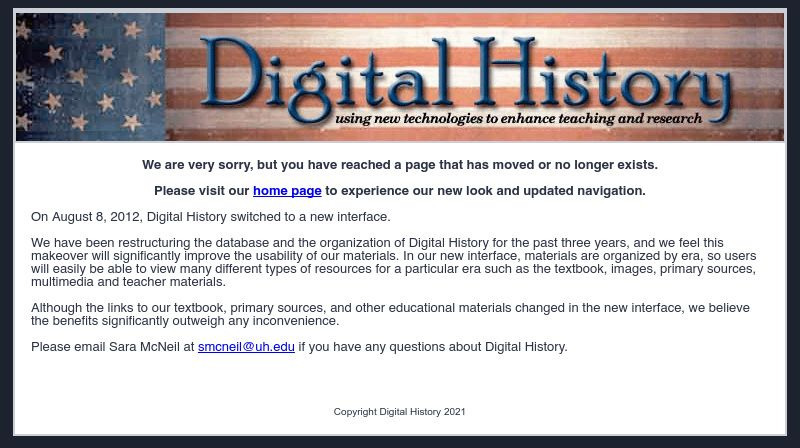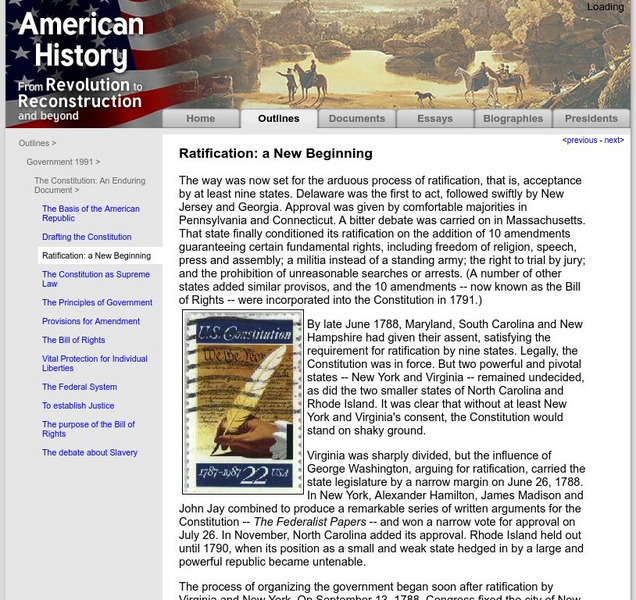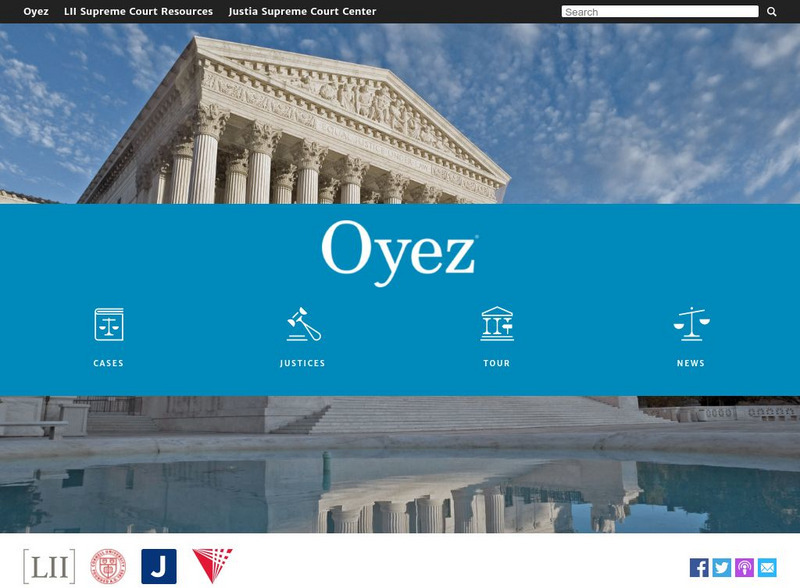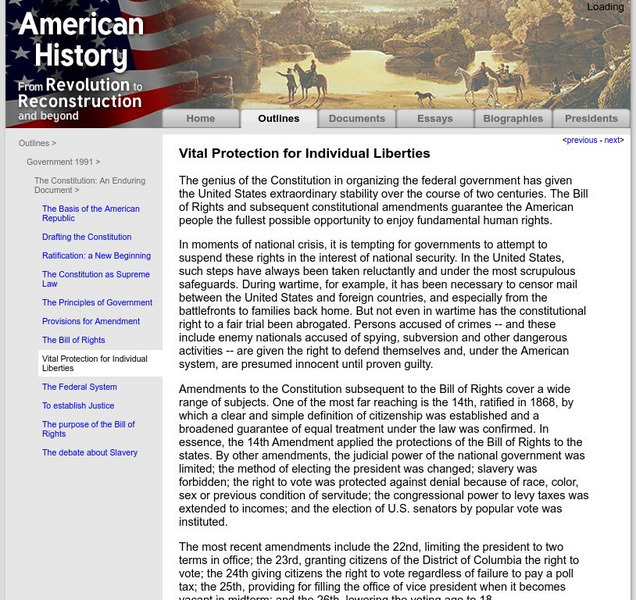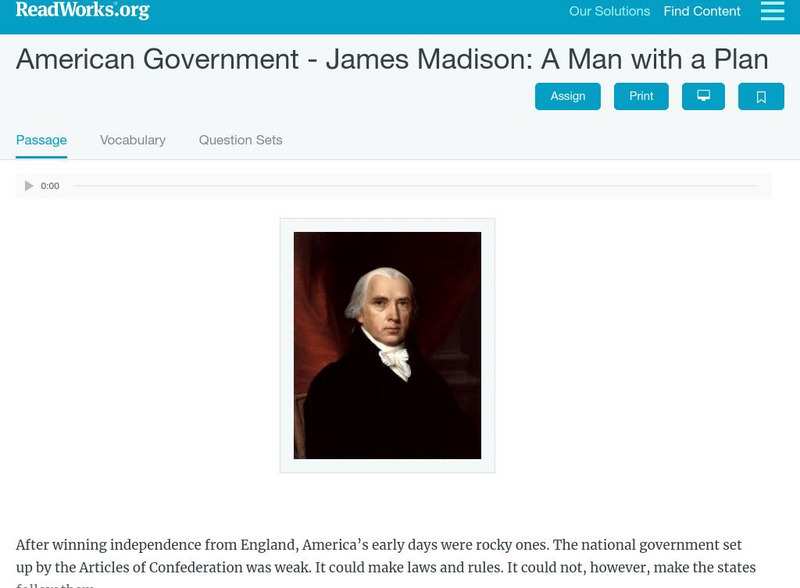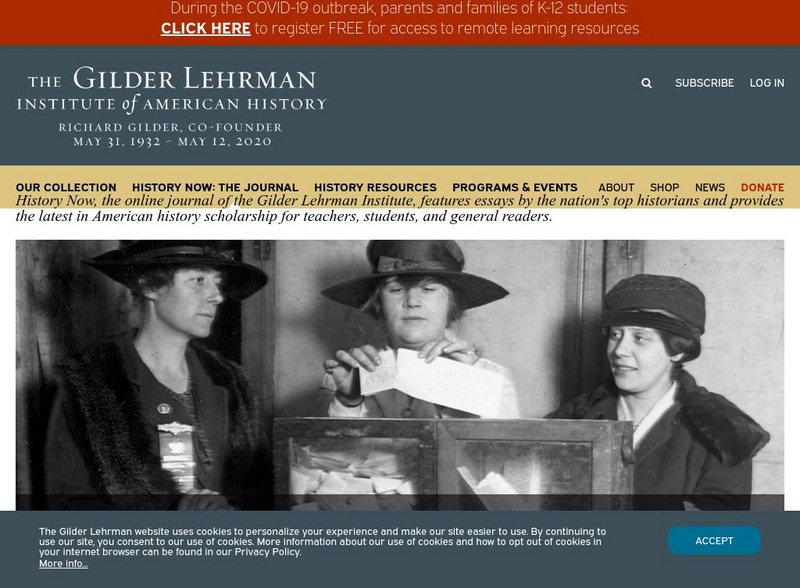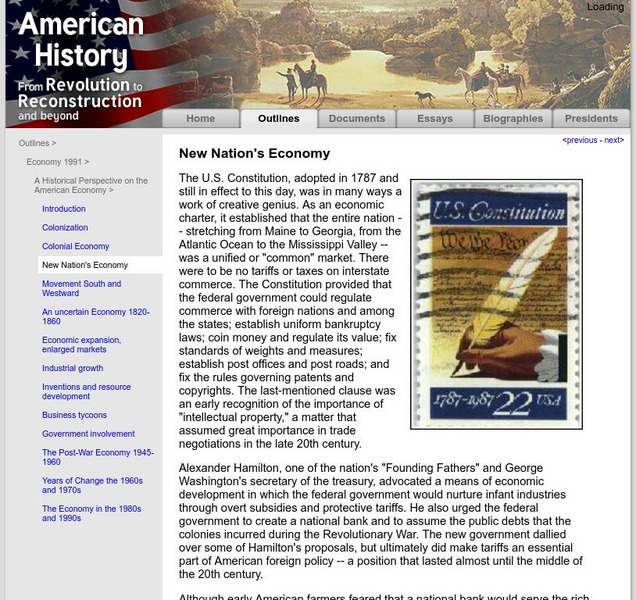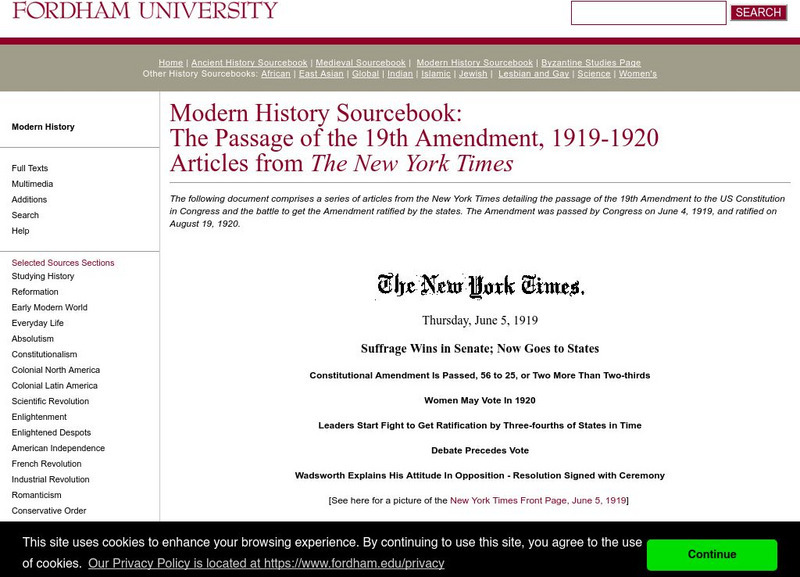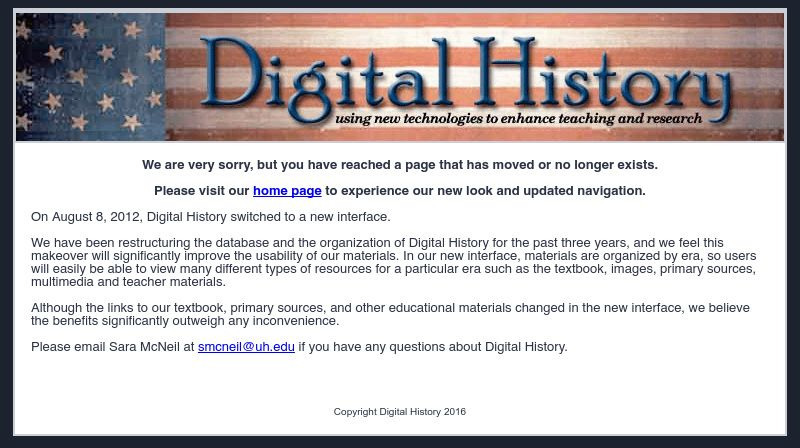National Women’s History Museum
National Women's History Museum: 19th Amendment
Examine the ratification of the Nineteenth Amendment to the U.S. Constitution granting women voting rights.
Ohio State University
Osu History Teaching Institute: u.s. Constitution: The Bill of Rights
Fifth graders will examine the Bill of Rights of the US Constitution.
Independence Hall Association
U.s. History: Edmund Randolph
Ushistory.org provides this biography of Edmund Randolph includes highlights of his political career and his role during the Constitutional Convention. Randolph went on to serve as Secretary of State.
Independence Hall Association
U.s. History: A Revolution in Social Law
Being able to own land and having land availble to own brought about great change in the new American nation. Read about how this came about and why it reflected new republican ideals. See what other changes were reflected in new state...
Digital History
Digital History: Republicanism
The framers of the Constitution had a great distaste for the monarchial society of Great Britain. See how this was reflected in the checks and balances they wrote into the Constitution in an effort to create a working republic.
Other
Institute for American Liberty: The First Principles of the Constitution [Pdf]
This article contains information about the principles used to create the Constitution of the United States.
Digital History
Digital History: The Oldest Written National Framework of Government
See how unique the U.S. Constitution has been over the 200 plus years of our government.
University of Groningen
American History: Outlines: Drafting the Constitution
Essay covers from the Articles of Confederation and the problems of disunity of the new states after the Revolutionary War, internally as well as externally, to the Constitutional Convention, an attempt to address the Articles' problems....
University of Groningen
American History: Outlines: Ratification
This site from the University of Groningen provides a synopsis chronologically written on the ratification of the U.S. Constitution beginning with the first states who accepted the document to pressures exerted by the Federalists to...
A&E Television
History.com: Continental Congress
From 1774 to 1789, the Continental Congress served as the government of the 13 American colonies and later the United States. The First Continental Congress, which was comprised of delegates from the colonies, met in 1774 in reaction to...
A&E Television
History.com: Native Americans Weren't Guaranteed the Right to Vote in Every State Until 1962
Native people won citizenship in 1924, but the struggle for voting rights stretched on much longer. Native Americans couldn't be U.S. citizens when the country ratified its Constitution in 1788, and wouldn't win the right to be for 136...
ClassFlow
Class Flow: Creating a Classroom Constitution
[Free Registration/Login Required] Using this flipchart, students will learn about the United States Constitution and how they can create a constitution for their classroom.
Illinois Institute of Technology
Oyez Project
The OYEZ Project is a vast multimedia relational database on the U.S. Supreme Court that contains abstracts for all leading constitutional decisions of the Court, authoritative oral arguments in streamed media format, and a 360-degree...
Digital History
Digital History: Religion and the u.s. Constitution
A very brief explanation of the three-pronged test the Supreme Court uses to determine the constitutionality of a governmental poiicy to ensure it doesn't advocate the establishing of religion.
University of Groningen
American History: Outlines: The Principles of Government
Outline of the man principles of U.S. government under the constitution.
University of Groningen
American History: Outlines: Vital Protection for Individual Liberties
Explanation of the constitutional amendments and process of amending as intentionally organized to increase protection of the civil liberties of U.S. citizens.
Read Works
Read Works: American Government James Madison
[Free Registration/Login Required] This nonfiction passage contains biographical information on "Father of the United States Constitution" and former United States President, James Madison. This passage is a stand-alone curricular piece...
Gilder Lehrman Institute of American History
Gilder Lehrman Institute: History Now: Every Four Years
[Free Registration/Login Required] A middle school lesson plan that helps students research the history of the qualifications for a president and presidential elections.
University of Groningen
American History: Outlines: New Nation's Economy
The U.S. Constitution, adopted in 1787 and still in effect to this day, was in many ways a work of creative genius. As an economic charter, it established that the entire nation -- stretching from Maine to Georgia, from the Atlantic...
University of Groningen
American History: Biographies: Alexander Hamilton
This site is provided for by the University of Groningen. Alexander Hamilton represented the growing movement towards a strong national government. Read the beginning stages of the nationalist movement, the conflicting ideas of state...
University of Groningen
American History: Biographies: George Mason the Virginia Bill of Rights
The Virginia Bill of Rights was the framework for the U.S. Constitution's Bill of Rights. Some of Mason's actual phrasing appear in the first ten amendments passed fifteen years later. He is credited for authoring the first American...
Internet History Sourcebooks Project
Fordham University: Modern History Sourcebook: Passage of the 19th Amendment
This site from the Modern History Sourcebook of Fordham University comprises a series of articles from the New York Times detailing the passage of the 19th Amendment to the U.S. Constitution in Congress and the battle to get the...
University of Groningen
American History: Biographies: Abraham Baldwin 1754 1807
Baldwin was born at Guilford, Conn., in 1754, the second son of a blacksmith who fathered 12 children by 2 wives. Besides Abraham, several of the family attained distinction. His sister Ruth married the poet and diplomat Joel Barlow, and...
Digital History
Digital History: "Bleeding Kansas" and "Bleeding Sumner"
Read about how the concept of popular sovereignty expressed in the Kansas-Nebraska Act resulted in political intrigue and murder in Kansas and the caning of a U.S. Senator in the Senate chamber.



